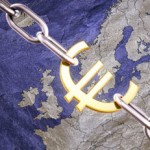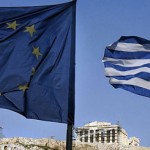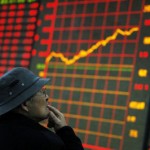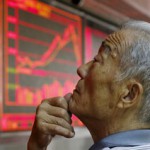Scariest Events from the Financial World: 2000 to Present
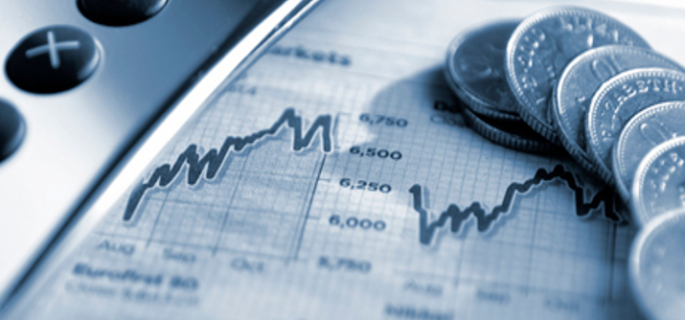
It’s no secret that the global financial markets offers a ton of opportunity, but can be equally as scary. There are so many factors at play in the free flow of trillions of dollars each day that it’s not always possible to explain rationally why events unfold the way they do. Luckily, we have studied market crashes and unusual events long enough to know how they play out. But given that this is the Halloween season, we thought it useful to share with readers ten of the scariest things to play out in the global financial markets since 2000. If your palms get sweaty reading these, simply reassure yourself that, most of the time, investing is really much more rational than the extreme cases make it out to be.
Dot-Com Bust
The 1990s was the decade of the Internet. Wall Street knew it all too well. Every “dot-com” stock was being picked up left and right by investors, who were eager to capitalize on the new information economy. In reality, the world of online business was still in its infancy. In March 2000, when most of the dot-com stocks were listed on the Nasdaq, the market crashed. It turns out investors were getting rich off unprofitable stocks. This eventually caught up with the market, resulting in one of the biggest crashes ever. After peaking at 5,132.52 on March 10, 2000, the Nasdaq would eventually fall to 1,114.11, losing nearly 80%.
Enron Fraud
The story behind Enron is scarier than any Halloween horror movie you can imagine. Enron, which was one of the top energy companies of the early-2000s, was caught in one of the biggest corporate fraud scandals of all time. The company hid billions of dollars of debt from its shareholders. When the dust settled, shareholders lot more than $60 billion, leading to the passage of the Sarbanes-Oxley Act in 2002, which increased penalties for “creative accounting” and other fraudulent activities.
9/11/2001
The events of September 11, 2001 will go down as one of the most devastating in US history. Its impact on the global financial markets was also crushing. The terrorist attack caused $40 billion in insurance losses, making it one of the largest insured events in history. Global markets either canceled trading or shut down altogether, with New York Stock Exchange experiencing one of its longest closures in history. Global airline, tourism and security industries were also affected. The terrorist attack would lead to a bear market the following year, with markets falling in North America, Asia and Europe.
Bernie Madoff Ponzi Scheme
Bernie Madoff, the disgraced owner of a former investment advisory firm, is credited with running the biggest Ponzi scheme in US history. He managed to steal $65 billion from investors during his long career, racking up 11 federal felonies in the process. Madoff is currently serving a maximum sentence of 150 years in prison after he was busted in 2008. His son, Mark, committed suicide in December 2010. Crime certainly doesn’t pay in the long run.
Great Recession
No Halloween-themed financial article would be complete without talking about the 2007-2008 subprime mortgage crisis and subsequent global recession. We’ll spare you the gory details and leave you with this: the crash was so devastating that it led to a $7 trillion quantitative easing campaign from global governments desperate to grow their economies. Seven years later, most economies are still struggling with the after-effect of the turmoil, with evidence of a new crisis emerging, this time originating in Asia.
It also bears mentioning that the European sovereign debt crisis of 2010 also had its roots in the Great Recession.
Dubai Debt Standstill
The onset of the Great Recession led to another crisis when Dubai’s once booming real estate market came to a crushing standstill. Dubai World, which in 2009 had debts of $59 billion (accounting for three-quarters of the emirate’s entire debt), laid off 10,500 employees worldwide. Concerns about a bigger fallout from the debt crisis spread all over the world, with major indices in Europe and Asia falling. Dubai World later announced that it had reached a new debt restructuring deal with most of its bank lenders, staving off a bigger crisis.
“Grexit”
While the Greek debt crisis was borne out of the Great Recession, its roots likely extend well beyond Greece’s ascension into the Eurozone in 2001. After racking up €323 billion in debt to the European Central Bank, European Union and International Monetary Fund, Greece was on the brink of insolvency and being booted from the euro earlier this year. The deal to keep Greece funded and part of the euro was struck on July 13, ending a bitter six-month battle that threatened to tear Europe apart.
Black Monday
On August 24, 2015, the global financial markets plunged into chaos in a day now simply referred to as “Black Monday.” More than $1 trillion was wiped from the global financial system in one day stemming from a panicked sell-off in China, which quickly spread west to Europe and North America. It had been the single worst trading day since the global financial crisis of 2007-2009.
Find more: Contributing Authors









